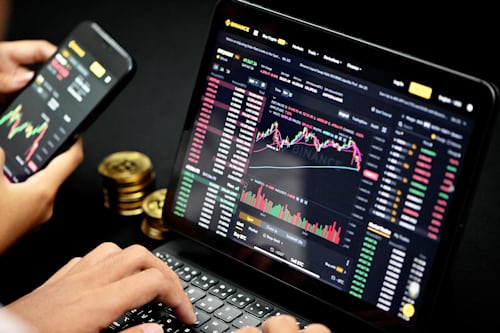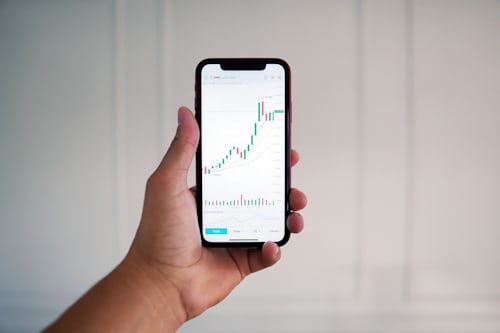In the search for lucrative forms of investment, investors also come into contact with so-called "convertible bonds". They offer the chance of a higher return in the long term due to the possibility of conversion into shares. However, investing in these securities usually requires precise knowledge of the market, as other factors such as the share price play a role in the success of the investment in addition to the issuing company. This guide provides you with detailed information on convertible bonds and answers all important questions about them.
A convertible bond is first of all a conventional debt security of a company, which is defined by the interest coupon, the issuer itself, its limited term and its nominal value.
Unlike conventional bonds, however, the convertible bond includes the option to convert the security into shares of the issuer. When, whether and at what price this conversion is possible is defined in the company's issuing prospectuses.
For example, the conditions include exactly how many shares the investor receives per bond. In addition, the conversion period is defined. This is also called the "conversion period". Usually, this period starts a few days after the convertible bonds are issued and ends again only a few days before the end of the term.
Lower interest, but often higher yields
Convertible bonds usually pay less interest than other bonds. On the other hand, investors can benefit from gains in the share price when the bond is converted and from an even higher yield.
Convertible bonds can be issued with a conversion obligation or only with a conversion option. In the latter case, the investor has the option of continuing to hold the bond at the fixed interest coupon until maturity. He then receives at least the nominal value of his bond back.
Here is good point from forex-exness: "พันธบัตรแปลงสภาพจึงให้ความปลอดภัยของพันธบัตรทั่วไปที่มีความเป็นไปได้ในการเพิ่มผลกําไรโดยการคาดการณ์ราคาหุ้นที่สูง. คุณสามารถเก็งกําไรในราคาด้วยเทรด Exness CFD "
"Convertible bonds thus offer the security of a conventional bond with the possibility of increasing profits by speculating on a high share price. You can also speculate on prices with CFD"
In this case you profit from the convertible bond
Bonds often offer investors only a low interest rate. Therefore, these bonds are not particularly attractive as an investment. Since the bond can be converted into shares of a company within a fixed period, investors benefit from rising share prices. At the same time, they can also profit from a rise in share prices if they want to sell their bonds. This is because their prices are strongly geared to the issuer's share prices, especially with a conversion option.
Other forms
- Exchangeable bond
The exchangeable bond is characterised by the fact that the bonds are not converted into shares of the issuer itself, but into shares of a third company. This can be the case, for example, if a company has founded a partner company and wants to provide it with fresh capital through shares. The English term for these convertible bonds is "exchangeables". - Mandatory convertible bond
This type of convertible bond is also called a mandatory convertible bond. In this case, the investor undertakes to convert the bond into shares at the latest by the end of its term. Mandatory convertible bonds are therefore associated with a higher risk for investors. If the company's share price falls sharply during the term, for example, a loss of yield is to be expected. - Contingent Convertible Bond
These convertible bonds are also called CoCo bonds. They are bonds that automatically convert into shares if the equity ratio of the issuing company falls below a predefined threshold. The introduction of CoCo bonds is intended, for example, to prevent banks or companies from becoming insolvent in the long term because they can no longer service the bonds they have issued. - Reverse convertible bond
In this case, the issuer also gets to decide when the bond is converted into shares.


